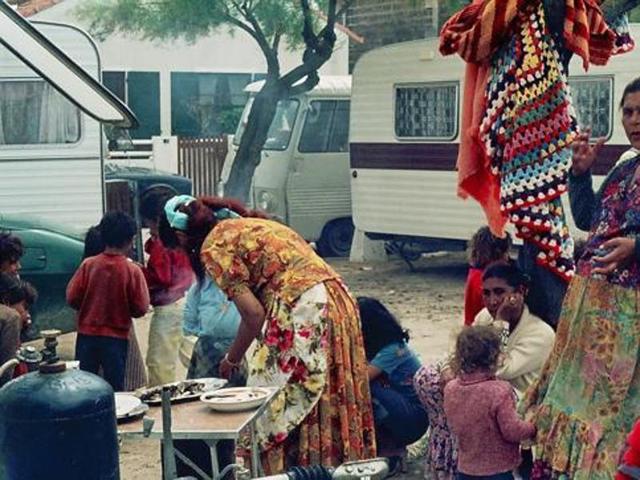What’s common between Charlie Chaplin, Elvis Presley, Picasso and India?
Roms, a community of gypsies who trace their origin to India and count as their own iconic comedian Charlie Chaplin, Elvis ‘the king of rock and roll’ Presley and legendary painter Pablo Picasso want New Delhi to officially designate them a minority of Indian origin.
Roms, a community of gypsies who trace their origin to India and count as their own iconic comedian Charlie Chaplin, Elvis ‘the king of rock and roll’ Presley and legendary painter Pablo Picasso want New Delhi to officially designate them a minority of Indian origin.

Roms are believed to be linked to Indian nomadic tribes such as the Dom, Banjara, Gujjar, Sansi, Chauhan and Sikligar.
The Roms now want official recognition from Indian authorities as a first step to battle negative perceptions about the community, considered criminal in many parts of the world.
“We are expecting after all these years India should recognise the Roms as Indian national minority. There is anthropological and physical evidence that we belong to India,” Jovan Damjanovic the president of the World Roma Organisation- Rromanipen told Hindustan Times in an exclusive interview.
Damjanovic is in India to attend a three day conference on the Roms, which was inaugurated by External Affairs Minister Susham Swaraj on Friday and is being organised by the Indian Council for Cultural Relations and the Antar Rashtriya Sahayog Parishad Bharat (ARSPB).
Mainly concentrated in Central, Eastern and Southern parts of Europe, the Roms are counted among the most discriminated people in the world.
“Indians could win at cultural, economical and political level by accepting the origins of these 12-15 million people,” Damjanovic told HT.
He said Roms have the “Indian spirit of respect and integration” and the allegations that they are not keen on assimilation and integration, and prefer to remain in ghettos and on the margins is a deliberate attempt at creating misinformation about the community.
Damjanovic, a former Serbian minister without portfolio, was critical of the European Union for failing to stop the discrimination faced by the Roms in several countries, including forced eviction.
“European countries have double standards, while they welcome refugees from one country, they are treating Roma people in a different way. They are not making a mistake; they are doing it on purpose. All member states of the UN are compelled to host refugees from any country, but for Roma the rules are different,” he said.
The conference seeks to study the Roma community’s challenges in different countries and existing constitutional safeguards; to review the existing scholarly studies and literature on the connections between Roma and India and for creating awareness and encourage more research about Roma cultural roots in India.
There is also a proposal to set up scholarships for Roma students in India and to re-establish cultural links and promote cultural studies.
“India is committed to all people of Indian origin, we celebrate their cultural links. Such conferences help us to understand and create awareness,” ambassador C Rajasekhar, director general of the ICCR, said.
These linkages might have grown faint in public mind but the Indian Council for Cultural Relations is organising a three-day conference in New Delhi, beginning Friday, to explore and trace these linkages.
Academy award winners Yul Brynner and Michael Caine, actor Bob Hoskins and former tennis star Illie Nastase are other luminaries with possible ties to India.
The first Roma conference was held in 1976 in Chandigarh, attended by then Prime Minister Indira Gandhi; she also inaugurated the 1983 International Roma Cultural Festival. In 2001, 33 Roma scholars and representatives from 12 countries attended an event and interacted with former PM Atal Bihari Vajpayee.





